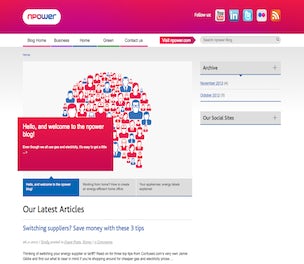Bing takes aim at rival with ‘Scroogled’ campaign
Bing has launched an online campaign squaring up to Google, warning consumers that its rivals’ Shopping search is largely dictated by how much brands pay to lift their rankings.
The Microsoft-owned search engine has launched a website at scroogled.com drawing consumers’ attention to Google’s change to its algorithm, which now sees Shopping listings ranked – in part – by the bid price advertisers pay.
It hopes to encourage web users to switch to its service by allowing users to press one button to set Bing as their homepage or share the information via Facebook or Twitter via the Scroogled site.
Bing has also created a video (above) to get people “up to speed” with the issue.
In a blog post, Mike Nichols, Bing’s corporate vice president and chief marketing officer, says the lighthearted “Don’t get Scroogled” campaign acts as an “alert” to Christmas shoppers about Google’s “misleading” search practices, which Bing claims its competitor rolled out “under the radar”.
He adds: “In short, we think that too many shoppers who use Google for their shopping searches are getting ‘Scroogled’ when they should be getting fair, honest, open search. It’s like Ebenezer Scrooge met Google Shopping. We think consumers should be aware what they’re seeing when they’re shopping online and to understand, without any hidden text or traps, the fine print of what their ‘search engine’ actually searches.”
Nichols says Bing does not let companies that pay for ads or other services affect what users see in search results and adds that the company has promised not to switch to a “pay-to-rank” platform.
Bing is also calling on Google to change its pay-to-rank system for shopping results, in favour of “honest search”.
The changes to Google commerce have already rolled out in the US and are due to take effect in the UK from February 2013.
A Google spokeswoman says: “We made the transition to Google Shopping to improve the shopping experience for our users. We believe that having a commercial relationship with merchants will encourage them to keep their product information fresh and up to date. Higher quality data – whether it’s accurate prices, the latest offers or product availability – should mean better shopping results for users, which in turn should create higher quality traffic for merchants.”
Google commands a 76.3 per cent share of all the searches performed in the UK, according to comScore






